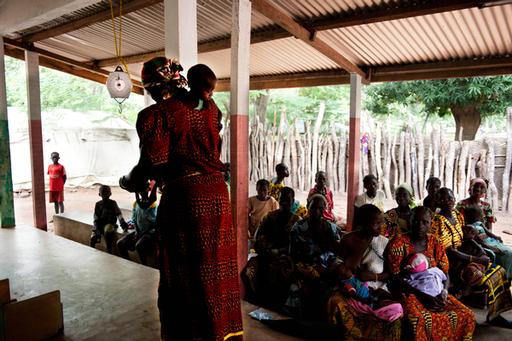- Ongoing war has resulted in a protracted humanitarian crisis in the Central African Republic (CAR), creating severe health needs among the population.
After the deadly civil war that took place in 2013-2014, CAR enjoyed a period of relative calm. However, tensions between the more numerous armed groups exploded again at the end of 2016, throwing the country into a renewed spiral of violence. The conflict developed throughout 2017 and into 2018 in the form of violent attacks in several locations, creating dire health needs among the population.
- Armed groups control 70 per cent of the country, and large numbers of wounded have little options for treatment.
Some of the wounded are referred to the Central African capital of Bangui for treatment for want of specialist facilities elsewhere in the country. Jean-Noel was shot in the left leg and came to Bangui for treatment. “We were in the fields collecting cassava. A militia arrived in our village, Ouogo. They surrounded us. They shot at us.” His life was saved but he lost his leg. For Jean-Noel and many others, the violence in the country has led to life-altering injuries. Not everyone will be able to access the healthcare they need, with populations in many areas unreachable owing to the ongoing conflict.
- Women and children, already a vulnerable group in times of conflict, face ever-greater challenges.
Even for those not directly injured in conflict, the violence has had a direct impact on access to medical care, food, water, shelter and education. “A mother can have 7 to 10 children,” says Adele Priska Yazando, midwife at MSF’s project in Castor Hospital, in Bangui. “She doesn’t have enough money to pay for prenatal care, nor the means to take care of her and her baby’s health. Because of this we receive patients with complications.”
- In many regions, MSF health structures are the only place for people to seek treatment free of charge.
In Kabo and Bambari, in the north and south of CAR, respectively, MSF-supported hospitals are the only places offering treatment for those with bullet wounds. In March, Bambari experienced a particularly violent episode, with teams receiving 14 patients with gunshot wounds in one evening. But other regions are inaccessible to those providing healthcare, and people affected by the conflict lack the resources to pay for treatment and medication.
MSF provides free healthcare to mothers across the country, as well as providing medical care and assistance to survivors of sexual violence in various locations across CAR. MSF offers outpatient and inpatient care to local communities and internally displaced people in 10 provinces. In Batangafo and Kabo, Boguila and Bossangoa (Ouham), Paoua (Ouham-Pendé), Carnot (Mambéré-Kadéï), Bangassou (Mbomou), Bambari (Ouaka), Bria (Haute-Kotto), and the capital Bangui, the team provides basic, specialised and emergency care, as well as maternity and paediatric services.




